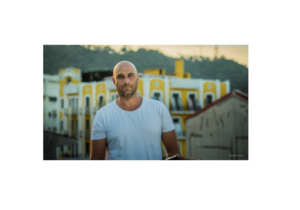There’s a moment in every election campaign when you can feel the scales tip toward the eventual winner, when a meaningful message breaks through and the public support shifts toward a certain pending outcome. How to identify or create such moments, then capture and influence it, and then apply those methodologies to the corporate environment, has been the lifelong focus of Sir Lynton Crosby, Executive Chairman of the London-headquartered global consultancy CT Group.
Fresh on the heels of new office openings in Abu Dhabi and Singapore, Executive Edge caught up with Sir Lynton to chat about his leadership culture, the importance of insight from business intelligence and due diligence, and why he is disinterested in growth for growth’s sake.
Exec Edge: How did a couple of political pollsters from Australia manage to build such a large consultancy, with offices in 8 countries?
My partner Mark Textor and I first met in the early 1990s while working together for the Liberal Party in Australia on multiple campaigns in Australia. The idea to form a consultancy seemed like a natural next step. I had a lot of experience in running political campaigns, and Tex had unparalleled experience in opinion research, having been trained by Ronald Reagan’s famous pollster, Richard Wirthlin. We took those two skill sets of campaign management and strategic polling that we had developed from being involved in politics and running campaigns and saw that they could equally be applied to the private sector and problems outside of politics.
Our consulting practice was built on two concepts. The first was understanding what truly motivates people – why do they think a particular way, why do they act a particular way? How can we influence their behaviour? Secondly, we believed we could apply the campaigning model to persuade audiences on issues unrelated to politics – developing strategies to influence a variety of business decisions, from regulatory matters to investments, mergers, and shareholder disputes.
Exec Edge: A report in the Financial Review earlier this year indicated that CT Group is pivoting away from politics and focusing more on its corporate work. What prompted this change of direction?
It is less a change of direction and more a consolidation and expansion of all the tools in our armoury. Insight from data is the key to decision-making, and one thing that we’ve learned from campaigning is that you never allow yourself to get stuck with limited tactics – you always remain open to whatever tool is most effective. So our change of focus can be seen as a response to the marketplace – there’s just more demand from our company and corporate clients.
As an example, our client might want to target a new market and want to communicate effectively in that new market about its products or services. We’ll go into that market and understand how that company is currently perceived, where the deficiencies in the market are, where people are looking for a different approach, or where they’re dissatisfied with the current products and services they get. And from there, we will devise a strategy based on that research, and then, most importantly, work with the client to implement it.
Exec Edge: What is your leadership style, and what kind of culture have you built within CT Group?
One of the things I’m most proud of at CT Group is the number of team members who have been with us for 10 years or longer. Partly, our high retention is because the team has built a comradery burnished in challenging tasks. Partly, it’s the nature of the work that we do. We don’t advise companies on how to sell more widgets. We often are brought in by companies or organizations when they have a complex challenge, and there’s often a sense of urgency that is very motivating.
In terms of leadership, we’re a no-blame culture. People make mistakes, and it should come as no surprise when it happens. What matters is how we respond and how we develop our talent. We set high expectations and presume strong roles of personal responsibility. For young people who have that ambition, energy, and enthusiasm, the chance to get involved in projects that are important, complex, and challenging is something they benefit from.
Exec Edge: In recent years, CT Group has hired numerous former heads of intelligence from a variety of countries – are due diligence and investigations becoming a core part of the business?
It became evident over time that aside from the research, that is the insights you get from polling, there’s also other important human intelligence that can go a long way toward understanding what someone’s motivation is, how things operate in a certain market, and so forth. We always seek to build our campaigns on the most complete information and data available, it became natural to recruit the highest quality investigative talent.
Investigations are necessary when considering the motivations of counterparties to a negotiation, or determining the likely trends that a foreign government may pursue toward a particular industry, or the strategy that a legal team should take in a high-stakes court case, among other examples. We saw the benefit of recruiting experts who could provide valuable insights – though calling it “intelligence” sometimes makes it sound sort of cloak-and-dagger rather than what it is, which is a simple and deliberate approach using people with strong networks and the ability to reach out to people positively and constructively to gather information.
Exec Edge: After CT Group announced office openings in Abu Dhabi, Dubai, and Singapore, does this signal that you’re planning on a rapid expansion to other new markets?
No, not necessarily. We are primarily concerned with the quality of our work, not the quantity, and we eschew the idea of just growth for growth’s sake. Our expansion strategy is more based on our networks. We identify good people or come across good people in different locations. And when we find those people and if we feel that we share values and approaches, then we try to bring them into the business.
What I will say is that these new markets are exciting and dynamic. These countries have come a long way and are developing fast, with massive access to capital and opportunities and cultural movements. And it’s no longer just natural resources, but major new opportunities across an exciting range of industries, from technology and defence to healthcare and sports. But we are not restricted by sector.
And wherever you find a booming sector, you’ll also find companies facing unique challenges – so you’ll find us there, too.
Exec Edge: Thank you for your time, and best of luck!
Thank you.







